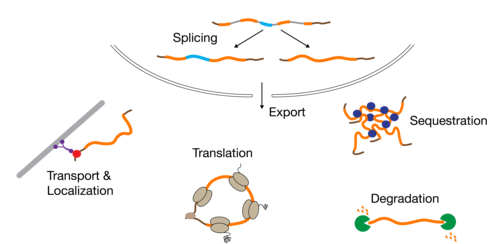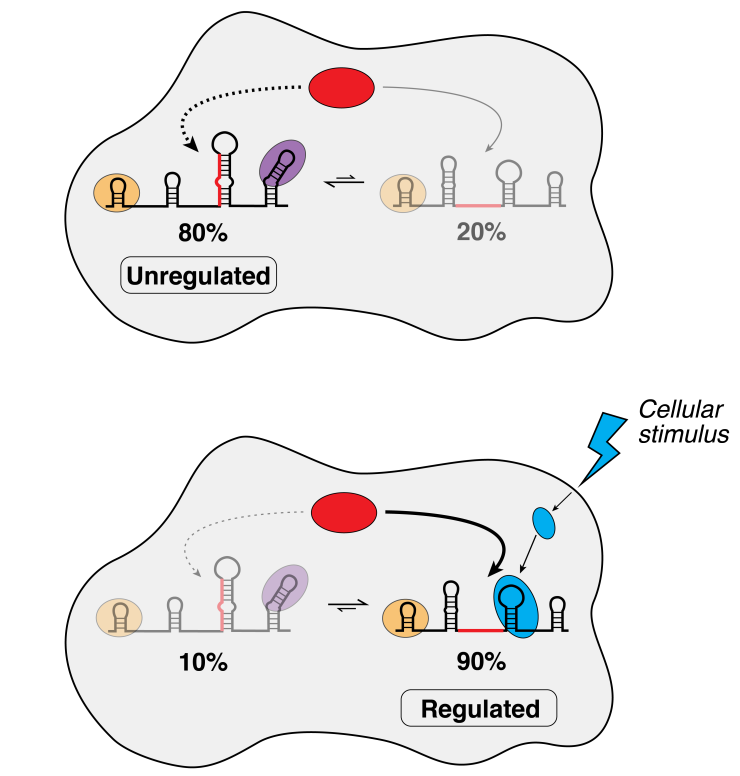About the Lab

Chemical, Computational, and Structural Biology of RNA
RNA molecules are dynamically regulated at every stage of their lifecycle, from co-transcriptional splicing, to subsequent export, translation, and eventual degradation. Gene-specific post-transcriptional regulation is fundamental to proper cellular function and its dysregulation is associated with manifold diseases. We seek to define the sequence-structure-function relationships that underpin complex RNA regulation. We aim to translate our findings into mechanistic understanding of RNA dysregulation in cancer, develop new precision therapeutics for targeting RNA, and enable bioengineering of RNAs with customizable regulatory programs.

Studying RNA Folding and Dynamics
RNAs are inherently driven to fold back on themselves into complex structures and these structures influence every aspect of RNA function. However, studying RNA folding and dynamics as it exists inside cells has been a long-standing challenge. A primary focus of the lab is to develop new chemical and computational technologies that enable high-throughput biophysical measurement of RNA structure and dynamics inside of living cells.
Knowledge of RNA structure in turn provides a foundation for defining biophysical mechanisms of RNA regulation. Key motivating questions include how do RNAs encode the specificity of their interactions with microRNAs and RNA binding proteins, how do RNAs integrate multiple signals to achieve nonlinear, combinatorial regulatory outcomes, and how do mutations promote aberrant RNA regulation in human disease? In addition to our core structural biology expertise, our work on these questions incorporates traditional biochemistry, molecular biology, genetics, bioinformatics, and computational modeling.
We are dedicated to collaboration and interdisciplinary science, and one of our core missions is to provide a supportive environment for young scientists to gain integrated training at the interface of experiment and computation. We seek to maximize the impact of our work through open source distribution of our data and methods, and via extensive collaboration with diverse colleagues both locally and around the world.

Mustoe Lab
Baylor College of Medicine
Department of Biochemistry and Molecular Biology
Department of Molecular and Human Genetics
One Baylor Plaza
Rooms T303-T307, MS: BCM 125
Houston, TX 77030
Phone: 713-798-5965 / Email: anthony.mustoe@bcm.edu








